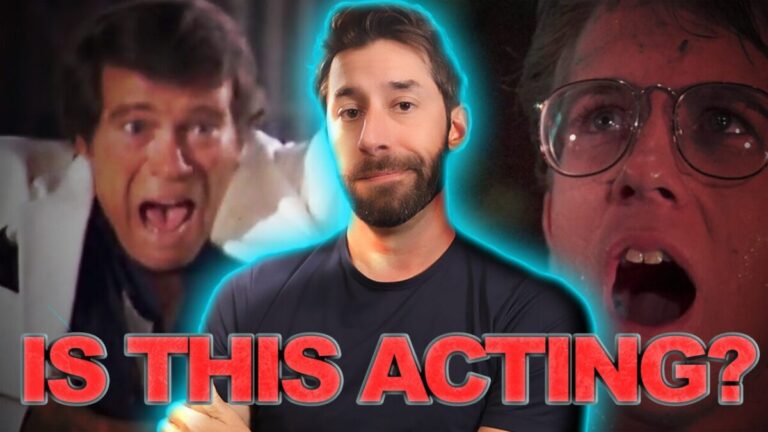Voice acting coaches get asked one question pretty often: “How long until I can do this full time?” It’s a fair question. After all, diving into voice acting can require a significant investment of time and money. But here’s the thing: there’s no straightforward answer. Every voice actor’s path is different, and success doesn’t come with a set timeline.
No two voice actors have the same journey. Some might land a gig right after setting up their online presence, while others might hustle for months, even over a year, before their first break. Plus, what counts as “full-time money” isn’t the same and depends on personal circumstances. One person’s monthly budget to live comfortably may barely cover rent for another. Asking someone to predict your success overlooks the many factors that contribute to a voice acting career.
Why Asking “How Long?” Is the Wrong Approach
When you focus on how long it will take to go full time, you risk undermining your career before it even starts. Instead, shift your mindset. The first module in my Voice Acting Academy is all about mentality. Success requires a strong mindset of embracing the daily effort in the booth and considers every “No” as progress rather than a failing verdict. Imagine shooting free throws at a hoop you can’t see. That’s a voice actor’s life—constant practice without immediate feedback.
Viewing voice acting as a checklist—get coaching, build a website, condition your space—can lead to frustration. You might wonder why you’re not a full-time voice actor yet, even after doing all the “right” things. But success isn’t about ticking boxes; it’s about consistent, continuous effort.
The Importance of Commitment and Consistency
Voice acting isn’t like getting a driver’s license. You don’t start up your DAW, make a 3-point turn, then get handed jobs. It’s a unique journey where your efforts in the booth build your future. Even if someone who started at the same time as you seems to be getting ahead, it’s not a sign that you’re failing or falling behind. It simply means you’ve got more work to do. On top of that, we never see how much effort others put in behind the mic. Maybe that other person is approaching genres you’re not interested in or took a different approach in their daily effort.
For example, let’s talk about two of my students in Pandora’s Vox who were booking pretty consistently starting out. One jumped onto the casting sites and was able to bring in paying work consistently, while the other focused on unpaid passion projects and casting calls on sites like Twitter. Both students booked; both students kept going. The one on casting sites earned more consistently the whole time, but the one who focused on passion projects made connections and built a reputation of being a reliable and creative person. Both looked at the other’s success with a tinge of envy, both even faced burnout when looking at the work they made for themselves while the other had a version of success they both wanted. But at the end of the day, both landed where they wanted to go. Student A made consistent money to cover VO expenses like coaching so they could start going after those animation jobs, and Student B has had a chance to work on high-level animation projects that gave them the confidence and inspiration to start chasing consistent albeit more “mundane” work. If you compare others’ success to your own, you undersell the effort you’re putting in and ignore the effort other voice actors have done. When you ask “How long?” and compare yourself, you risk thinking your career isn’t valid until one day it all clicks and you’re where you want to be. That’s not a healthy mindset, and more often than anything else, voice actors experience constant steps forward rather than just suddenly feeling like they’ve made it- even big time voice actors. You just have to keep going, review your own progress separate from those around you, and trust that continuous effort will get you where you want to go.
TL;DR? No one becomes a voice actor just by having a great voice. Even those who make it look easy have spent countless hours practicing. Failure isn’t fatal in voice acting—you only fail when you quit. And with a strong mindset, you won’t quit.
What You Should Be Doing Instead
So, if you’re not asking “How long?”, what should you focus on? Commit to the work, seek ways to learn and grow, and trust the process. Voice acting improves with practice. Instead of viewing auditions as pass/fail, see them as progress. They’re not job interviews but reps in the gym. No one fails at working out; each rep brings you closer to your goals.
Auditions aren’t the only way to progress. If you’re feeling burnt out, take a break and focus on other aspects of your career. How does your recording space sound? Is your website up to par? Have you started direct marketing? There’s always room for improvement. By committing to continuous growth, you’ll reach your goals.
Next time you wonder, “How much longer until I can go full time?”, ask instead, “What can I do today to be better tomorrow?”
If you’re ready to go, you can start by grabbing my free eBook. Remember, it’s not about how long it takes. It’s about putting in the work to make it happen. So stop wondering and get behind the mic!






